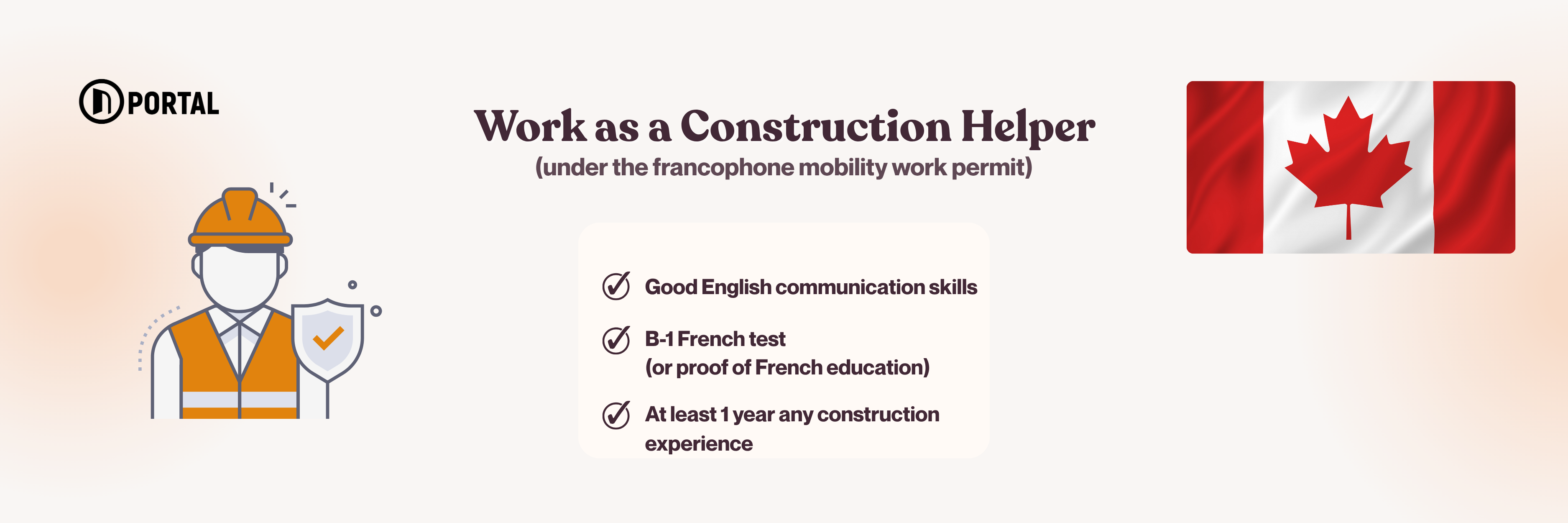
Work as a construction helper for Canadian construction companies, contractors, and building projects through the Francophone Mobility Work Permit.
Qualified applicants who speak French and English can receive a job offer from Canadian employers in the construction industry. This role is suitable for those who want hands-on work experience in Canada’s fast-growing construction sector and the chance to grow into higher-skilled trades over time.
As a construction helper in Canada, you will:
No. Construction helper jobs usually fall under TEER 5, which is not a PR-eligible category. This means your Canadian work experience as a construction helper does not count directly toward PR programs. However, once in Canada, you may transition to higher-skilled construction jobs (like carpenter, electrician, or welder) that are eligible for PR.
Residential, commercial, and industrial construction companies across Canada regularly hire construction helpers to support skilled workers and projects.
No, you cannot bring your family members under the current immigration restrictions for TEER 5 occupations. This may change in the future. Once you transition to a higher-skilled trade, your family may be able to join you.
Not always. Many employers accept candidates with little or no prior experience as long as they are physically fit and willing to learn.
The Francophone Mobility Work Permit is usually valid for 1–3 years, depending on your job offer. It can often be renewed if your employer extends your contract.
Yes, but you will need to apply for a new work permit tied to your new employer.
Absolutely. Our team assists with job matching, paperwork, the French test, and your entire work permit application. We’ll guide you through every step.
The process — from job offer to receiving your work permit — can take up to 1 year. This may vary depending on your profile, employer response time, and visa processing times.